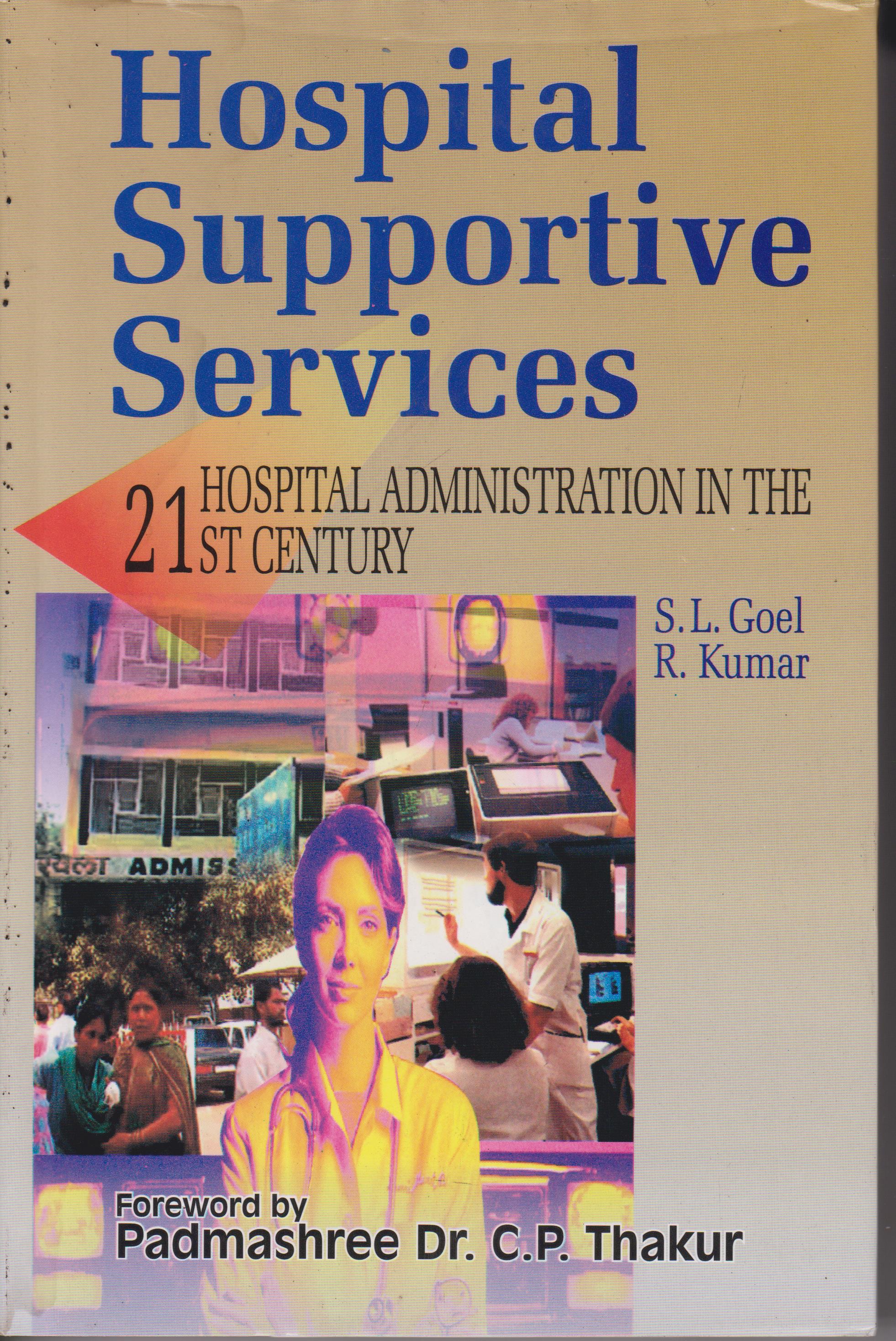Description
“Hospital Supportive Services” by R Kumar and S L Goel is a comprehensive guidebook that delves into the various aspects of supportive services in hospitals. The authors, with their extensive experience in healthcare management, provide valuable insights and practical advice on optimizing supportive services to enhance patient care and improve hospital operations. This book aims to serve as a resource for healthcare administrators, managers, and professionals seeking to streamline and improve support services within their healthcare institutions. In this review, we will explore the content, strengths, and weaknesses of the book, as well as analyze its impact and relevance in the field.
The book begins by providing an overview of hospital supportive services and their significance in delivering high-quality patient care. It covers a wide range of topics, including facility management, biomedical waste management, infection control, housekeeping, dietary services, and laundry services. Each chapter offers a comprehensive analysis of the specific area, discussing key concepts, best practices, and case studies that highlight successful implementations.
The authors emphasize the importance of effective management and coordination between various supportive service departments to ensure smooth operations and seamless delivery of care. They address common challenges faced by hospitals, such as resource allocation, staff training, and maintaining compliance with regulatory standards. The book also explores the role of technology in enhancing supportive services and provides practical insights on leveraging digital solutions for process optimization.
“Hospital Supportive Services” stands out as a valuable resource for healthcare professionals due to its practical approach and comprehensive coverage of the subject matter. The authors have successfully combined theoretical knowledge with real-world examples, making the book highly relatable and applicable to different healthcare settings. The inclusion of case studies and best practices adds depth to the content, enabling readers to understand the implementation challenges and solutions.
One of the notable strengths of the book is its organization and structure. Each chapter is well-organized and follows a logical flow, allowing readers to easily navigate the content. The authors provide clear and concise explanations, ensuring that even readers with limited background knowledge can grasp the concepts effectively. The use of tables, figures, and diagrams further enhances the understanding of complex processes and procedures.
In comparison to other books on hospital management and supportive services, “Hospital Supportive Services” stands out for its comprehensive coverage and practical approach. While some books focus solely on individual areas of supportive services, this book offers a holistic perspective, examining the interconnections and dependencies between different departments. The authors’ emphasis on coordination and integration is particularly commendable, as it reflects the current trend in healthcare management towards a multidisciplinary approach.
Throughout the book, a few key themes emerge. Firstly, the authors highlight the crucial role of supportive services in creating a conducive environment for effective healthcare delivery. They emphasize that supportive services are not ancillary functions but integral components that directly impact patient outcomes. Secondly, the book underscores the significance of efficient resource management and optimization in supportive service departments. Hospitals can enhance service quality by adopting cost-effective strategies and leveraging technology while minimizing waste and inefficiency.
As a non-fiction guidebook, “Hospital Supportive Services” does not focus on individual characters. However, the author’s expertise and experience shine through their writing, establishing them as authoritative voices in the field. Their insights, based on years of practical experience, lend credibility to the advice and recommendations provided in the book.
About the Author:
R Kumar and S L Goel, the co-authors of “Hospital Supportive Services,” are accomplished healthcare professionals with extensive experience in hospital administration and management. R Kumar has a background in healthcare quality management, while S L Goel specializes in hospital facility management. Both authors have held senior positions in reputable healthcare institutions, contributing significantly to the field of healthcare management. Their collective expertise brings a unique blend of theoretical knowledge and practical insights to the book.
The writing style in “Hospital Supportive Services” is clear, concise, and accessible. The authors present complex ideas in a reader-friendly manner, avoiding jargon and providing ample explanations for technical terms. The use of real-life examples and case studies adds depth and relevance to the content. The writing style balances academic rigor and practicality, making the book suitable for a wide range of readers, including healthcare professionals, administrators, and students.
What People Say About This Book:
Feedback from readers and professionals in the healthcare industry has been overwhelmingly positive regarding “Hospital Supportive Services.” Many commend the book for its comprehensive coverage, practical insights, and real-world examples. Readers appreciate the authors’ ability to distil complex concepts into easily understandable explanations. The book is widely regarded as a valuable resource for healthcare administrators and managers seeking to improve the supportive services in their institutions.
- Comprehensive coverage of hospital support services.
- Practical approach with real-world examples and case studies.
- Clear and accessible writing style.
- Emphasis on coordination and integration between departments.
- Expertise and credibility of the authors.






Reviews
There are no reviews yet.